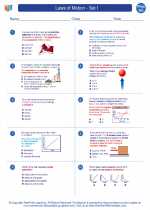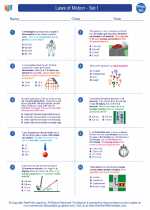Personalized Medicine
Personalized medicine, also known as precision medicine, is a medical approach that involves tailoring treatment and prevention strategies to the individual characteristics of each patient. This approach takes into account the unique genetic, environmental, and lifestyle factors that influence a person's health and the way they respond to treatments. Personalized medicine aims to provide the most effective and suitable treatment for each patient, while minimizing the potential for adverse effects.
Key Concepts
- Genetic Testing: Personalized medicine often begins with genetic testing to identify specific genetic variations that may influence an individual's risk of developing certain diseases or their response to particular medications.
- Targeted Therapies: In personalized medicine, treatments are customized based on the genetic makeup of the patient and the specific molecular pathways involved in their disease. This may involve the use of targeted therapies that address the unique genetic characteristics of an individual's condition.
- Pharmacogenomics: This field focuses on how genetic variations impact an individual's response to drugs, including their efficacy and potential side effects. Pharmacogenomic testing can guide healthcare providers in selecting the most appropriate medications and dosages for each patient.
- Predictive Diagnostics: Personalized medicine utilizes advanced diagnostic tools to predict an individual's risk of developing certain diseases, allowing for early intervention and personalized prevention strategies.
- Health Data Analysis: With the help of advanced technologies, personalized medicine involves the analysis of extensive health data, including genetic information, medical history, and lifestyle factors, to create personalized treatment plans.
Study Guide
To gain a comprehensive understanding of personalized medicine, it is essential to explore the following key areas:
- Learn about the basics of genetics and the role of genetic variations in human health.
- Understand the principles of targeted therapies and how they differ from traditional, non-personalized treatments.
- Explore the field of pharmacogenomics and its impact on individualized drug therapy.
- Examine the technological advancements that enable personalized medicine, such as DNA sequencing, bioinformatics, and data analytics.
- Investigate case studies and real-world examples of personalized medicine applications in treating specific diseases, such as cancer, cardiovascular disorders, and rare genetic conditions.
- Discuss the ethical, legal, and social implications of personalized medicine, including issues related to patient privacy, consent, and access to personalized treatment options.
By delving into these areas, you will develop a comprehensive understanding of personalized medicine and its potential to revolutionize healthcare by providing tailored, precise treatments for individuals based on their unique biological makeup.
.◂Physics Worksheets and Study Guides High School. Laws of Motion - Set I

 Worksheet/Answer key
Worksheet/Answer key
 Worksheet/Answer key
Worksheet/Answer key
 Worksheet/Answer key
Worksheet/Answer key
